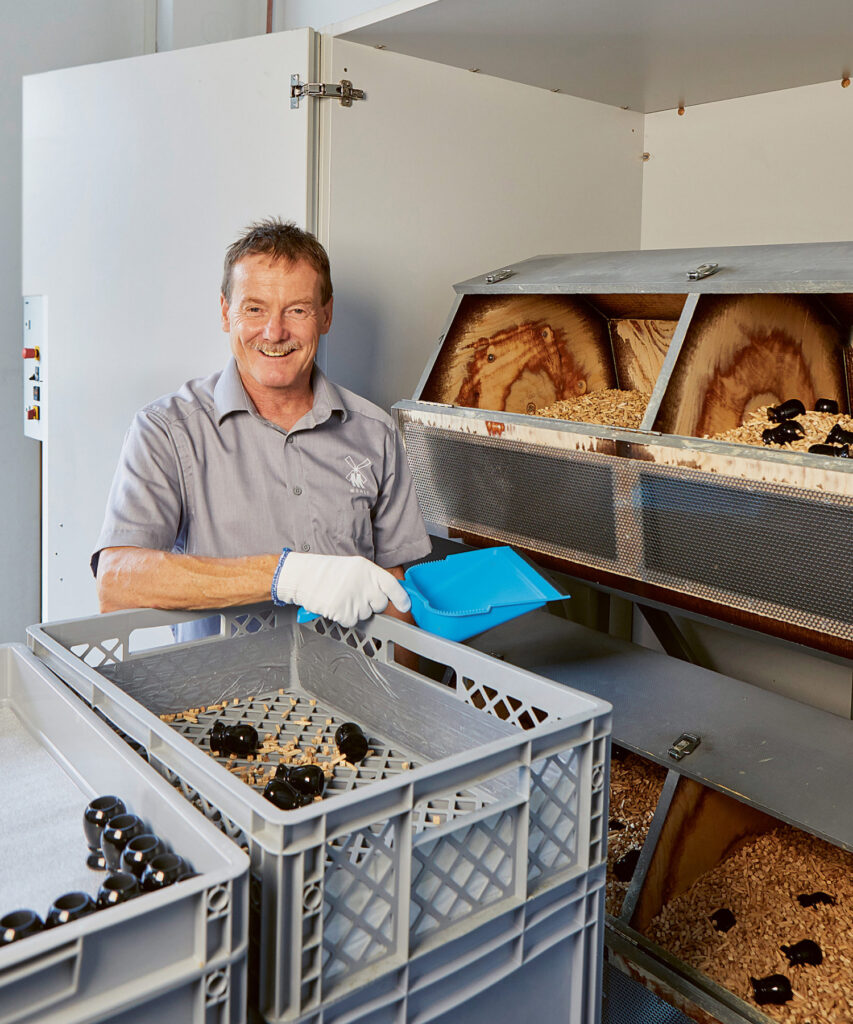The Skill: Thomas König
Thomas König carefully opens the flap of one of the grey drums locked in a cupboard. He takes out a handful of the small hardwood elements, examines them and kneads them in the palm of his hand. There are small cubes, balls and pointed pins. The handle elements of the razors and brushes are polished in the rapidly rotating drums, with the wood acting like sandpaper for the precious resin, a kind of high-quality plastic that looks rather dull and unimpressive before it’s polished. The differently shaped wooden elements ensure that all areas of the handle are processed equally.

Once the two-step polishing process has been successfully completed, the grain can clearly be seen and the colours begin to shine. Polishing paste is added to the wood in the drum. It has to be the right one, precisely measured, “otherwise you can chuck it all away”, says König. Handles are polished in the first drum for 14 hours. Then they go into the second one, where the wooden elements are shaped a little differently and the polishing paste is slightly different. Of course, König doesn’t just stand idly by the whole time. He may be the master of the polishing machines, but he can also take care of many other things in the manufactory.
This article is an excerpt from the new printed edition of 30 Grad. Further content will be published here successively in the coming weeks.